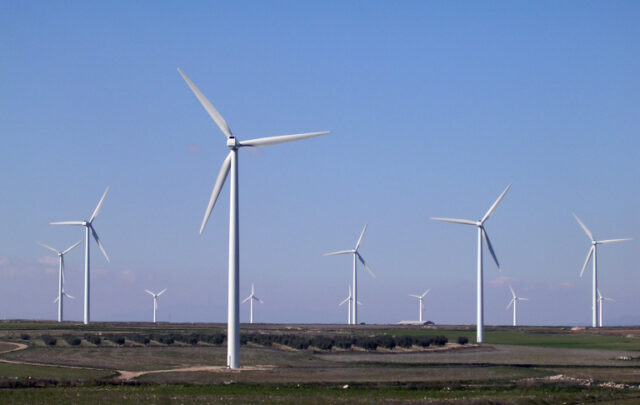NOTE: Images in this archived article have been removed.

Factory image via franganillo/flickr. Creative Commons 2.0 license.
Three things you shouldn’t miss this week
- Chart: Fossil fuel subsidies in numbers
- Graph: Bloomberg New Energy Finance shows that the electricity intensity of economies trends slightly downward as they grow richer
- Shell CEO: ‘carbon bubble’ campaigners ‘ignore reality’ – Royal Dutch Shell bombarded by climate change criticism at annual general meeting.
This week, the Queen’s speech assured us that the new government would “seek effective global collaboration to sustain economic recovery and to combat climate change”. Yet domestic measures were hardly encouraging: from the establishment of a new agency to maximise oil and gas recovery to plans to slash onshore wind subsidies, transferring responsibility for onshore wind farms to local authorities.
At the global level, the International Monetary Fund (IMF) drew attention to the scale of energy subsidies and uncosted damages that are currently benefitting the fossil fuel industry: worth a staggering $5.3 trillion per year, or $10 million per minute.
This focus on energy subsidies adds to mounting criticism of fossil fuel companies, particularly around global divestment campaigns. Shell
CEO Ben van Beurden remains insistent that projected growth in world energy demand will make fossil fuels essential for the coming decades – essentially a bet against proper action on climate change – but commentators such as
Lord Stern have questioned the wisdom of this approach.
More and more businesses are recognising the need to act on climate change and the incentives that continue to push them in the wrong direction. With consensus for strong action from a broad coalition building, there are high hopes for the Paris Climate Summit later this year. Expect to see more announcements as the negotiations near.
Related Reports and Commentary






